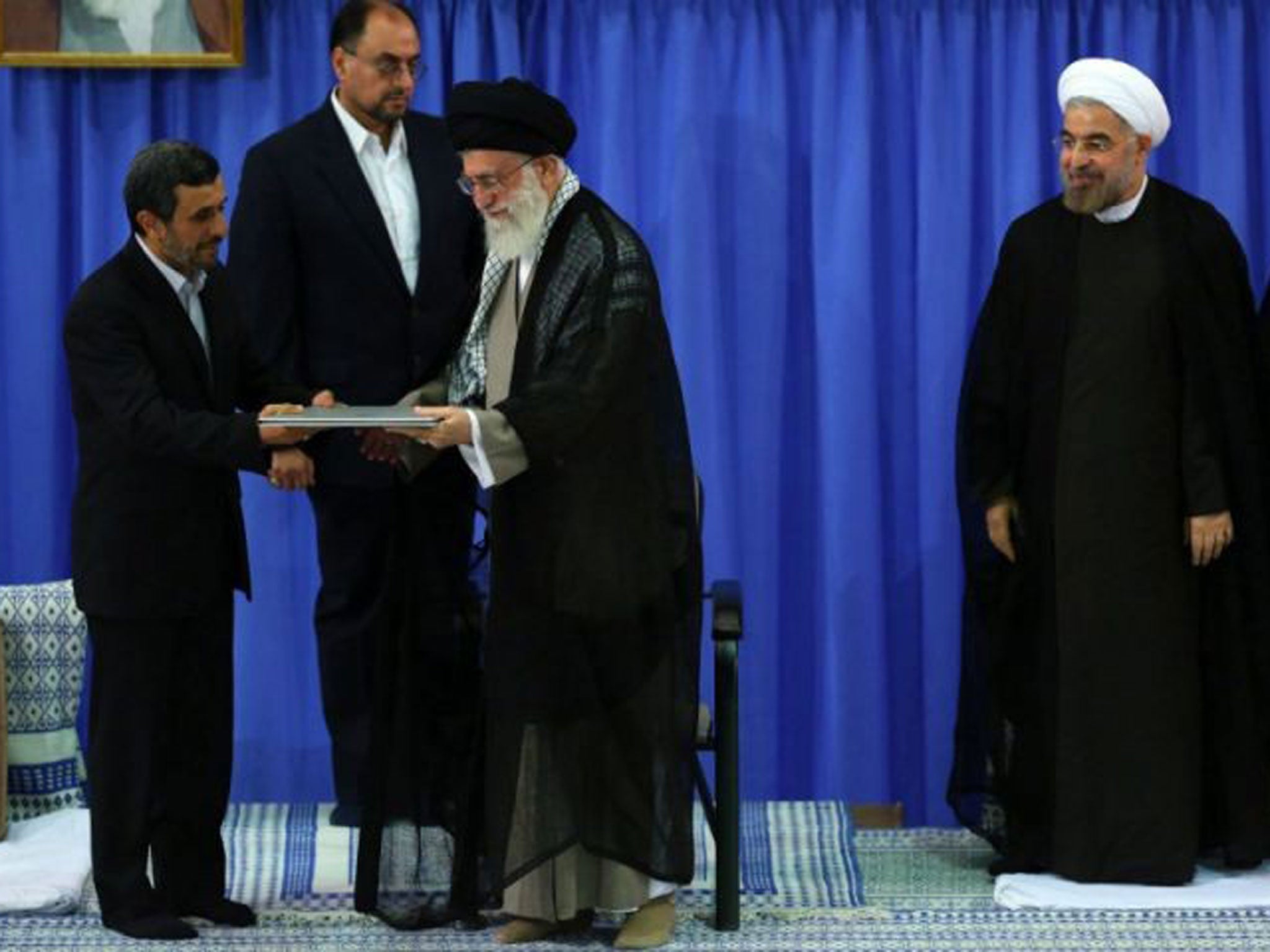Iran's new president Hassan Rouhani takes office
The moderate cleric becomes president of Iran after receiving endorsement from Supreme Leader Ayatollah Ali Khamenei

Your support helps us to tell the story
From reproductive rights to climate change to Big Tech, The Independent is on the ground when the story is developing. Whether it's investigating the financials of Elon Musk's pro-Trump PAC or producing our latest documentary, 'The A Word', which shines a light on the American women fighting for reproductive rights, we know how important it is to parse out the facts from the messaging.
At such a critical moment in US history, we need reporters on the ground. Your donation allows us to keep sending journalists to speak to both sides of the story.
The Independent is trusted by Americans across the entire political spectrum. And unlike many other quality news outlets, we choose not to lock Americans out of our reporting and analysis with paywalls. We believe quality journalism should be available to everyone, paid for by those who can afford it.
Your support makes all the difference.Moderate cleric Hassan Rouhani unofficially became President of Iran today after Supreme Leader Ayatollah Ali Khamenei endorsed him, state media reported.
Khamenei kissed Rouhani on the cheek and the new president kissed the leader on his lapel during a ceremony in Tehran.
The start of Rouhani's presidency brings an end to Ahmadinejad's eight years in office during which Iran grew more isolated and came under wide-ranging United Nations, US and European Union sanctions over its nuclear programme, putting enormous pressure on the economy.
Rouhani's resounding election win in June has increased hopes of a negotiated end to the dispute over Iran's nuclear programme, which could avert a potential new war in the Middle East.
Rouhani will face huge tasks in office, including combating inflation he put last month at 42 percent, reducing high levels of unemployment and bridging the political divisions between conservative, moderate and reformist factions.
When he registered for the 2013 presidential election, he pledged to prepare a civil rights charter, restore the economy and repair relations with the West.
But his first challenge will be persuading parliament to approve the candidates he has chosen for cabinet positions, which he is expected to introduce on Sunday during his public inauguration.
"Rouhani will certainly appoint more competent men and women to key economic ministries and institutions. He will also follow saner economic policies," said Shaul Bakhash, an Iran historian at George Mason University in Virginia.
"But the economic problems are staggering ... Above all, without a serious easing of sanctions, it is difficult to see how Rouhani can get the economy moving again."
Additional reporting by agencies
Join our commenting forum
Join thought-provoking conversations, follow other Independent readers and see their replies
Comments